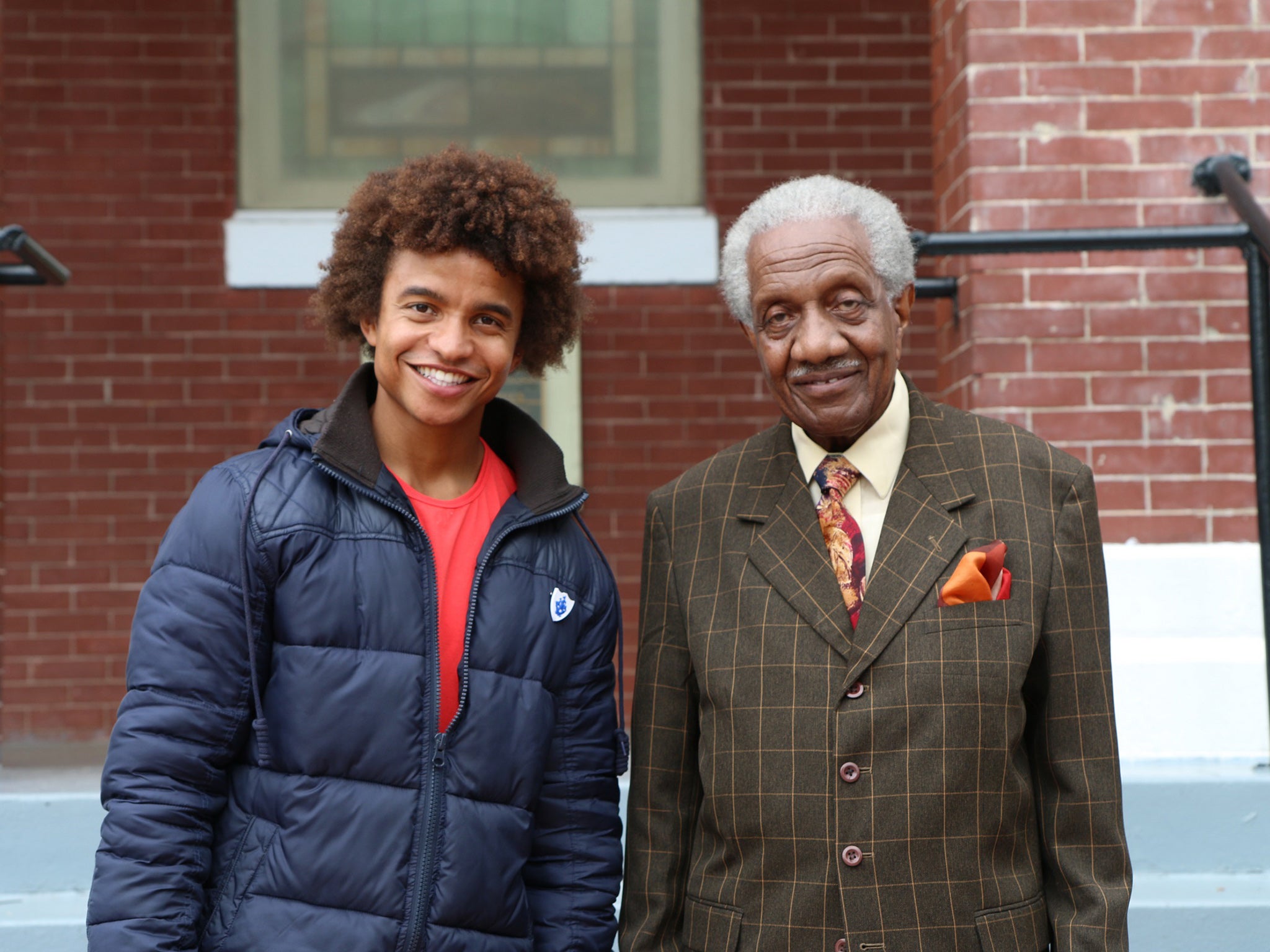Blue Peter gets political with US civil rights special
Blue Peter presenter Radzi Chinyanganya will retrace the path of the 50 mile walk, meeting the surviving history-makers of the pivotal Civil Rights protest

For generations who have grown up with Blue Peter, the teatime show was the place to learn about sticky-blacked plastic rather than politics.
But now the children’s favourite is to challenge its audience with a special edition devoted to the struggles faced by black Americans during the Civil Rights movement.
In a first for the world’s longest-running children’s show, Friday’s CBBC channel edition, titled The Walk That Changed The World, tells the story of the 1965 march between Selma and Montgomery in Alabama, led by the Rev. Martin Luther King, Jr.
Blue Peter presenter Radzi Chinyanganya will retrace the path of the 50 mile walk, meeting the surviving history-makers of the pivotal Civil Rights protest.
The BBC said the 30-minute film will bring to life for younger viewers the “violence, intimidation and difficult conditions” faced by the marchers, demanding the right to voter registration without obstruction.
The episode, marking the 51st anniversary of the march, fulfils a personal passion for Chinyanganya, 29, born to a black father from Zimbabwe and a white, Scottish mother. Rev King became a hero to Radzi, who was raised in Wolverhampton.
The Moscow-born Chinyanganya, a former GB Bobsleigh team member, is believed to have convinced BBC executives, initially sceptical about the project, to go ahead with the ambitious special.
During his journey Chinyanganya meets Senator John Lewis, who led the marches, Sheyann Webb, who was just eight years old when she faced police brutality on the Edmond Pettus Bridge, and Reverend Fredrick Reese, pastor of the Selma church the march left from.
The BBC said: “Over the course of that 50 mile walk, thousands of people joined to raise awareness around the world and bring about huge changes to the rights of black people in the US. It was a walk that means a lot to Radzi Chinyanganya.
“He’ll be eating the same food, walking the same roads, and hearing the music that inspired them, to try and experience some of what those protestors experienced back then, to discover how what happened in one corner of Alabama has affected the USA today.”
The special illustrates how Blue Peter, which moved from BBC1 to the digital CBBC channel in 2012, must constantly reinvent itself, as it faces a fresh challenge for young viewers from Sky, Netflix and Amazon Prime. Television viewing is in decline with CBBC’s target 6-12 age audience consuming content on mobile phones and tablets.
Further specials may follow, however the BBC could not say if a similar British social movement, such as the 1936 Jarrow march against unemployment and poverty, might be the focus of a future programme.
Blue Peter presenters are warned against straying into politics. Former presenter Konnie Huq had her BBC contract re-written after being criticised for attending a press conference alongside the then London Mayor, Ken Livingstone.
Launched in 1958, Blue Peter has courted controversy. It incurred a £50,000 fine from Ofcom during the competitions phone-rigging scandal and admitted a breach of trust in 2007 over the decision to name a new kitten Socks following a web vote.
Subscribe to Independent Premium to bookmark this article
Want to bookmark your favourite articles and stories to read or reference later? Start your Independent Premium subscription today.

Join our commenting forum
Join thought-provoking conversations, follow other Independent readers and see their replies